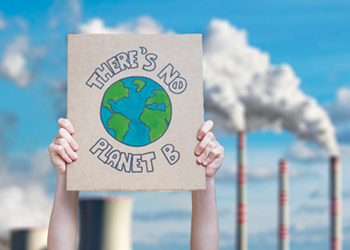

Carbon 'needs to cost $100/tonne'
BENGALURU: Setting the global average price of carbon per tonne significantly higher at $100 or more is necessary right away to incentivise net zero emissions by 2050.
Carbon pricing has come to the forefront of policy measures seen as ways to reduce emissions to a level consistent with the Paris Agreement target of less than 1.5-2 degrees Celsius of warming.
A higher price for carbon is seen as essential to fund the transition to net zero emissions by 2050, which is estimated to cost $44 trillion or 2%-3% of annual global GDP. The International Monetary Fund has recommended a global average carbon price of $75 per tonne by the end of the decade. But that figure should be at least $100, and right away, to reach net zero emissions by 2050.
Gas crisis: $500 million windfall for BP
LONDON: BP’s trading team made at least $500 million in the third quarter of 2021, as the energy major benefitted from a gas crisis that has left consumers and industries smarting.
Natural gas and power prices soared to an all-time high in Europe and parts of Asia in August. Low gas stocks after a cold winter and hot summer as well as poor renewables output contributed to the rally.
The gains were made as customers in Europe and Asia rushed to buy LNG from the US and other parts of the world to cope with shortages.
JPMorgan to keep funding fossil fuel firms
LONDON: JPMorgan plans to keep lending to the fossil fuel industry to help it transition to a low-carbon economy, despite campaigner calls for banks to phase out financing to the sector.
Chuka Umunna, who heads the bank's environmental, social and governance-related activities in Europe, the Middle East and Africa, said oil and gas companies were "part of the solution" to climate change and would need support to develop renewable energy technologies.
Umunna said the bank would constantly "evaluate and recalibrate" its targets, but would not commit to changing them straight away, given it had only laid out a plan on financing the oil and gas industry earlier this year.
Mexico postpones low sulfur diesel rule
MEXICO CITY: Mexico has delayed for three years a rule mandating that new trucks and buses use low-sulfur diesel, arguing the fuel is not currently available everywhere in the country.
COMARNAT, a government body that helps design and enforce environmental norms, agreed that until the end of 2024, motors that use conventional diesel can keep being used in Mexico, alongside motors built with new technologies.
The change to a more advanced technological standard for heavy vehicles will depend on the availability of ultra-low-sulfur diesel.
ExxonMobil supports global methane pledge
HOUSTON: US-based ExxonMobil has committed to working with the US government, the European Commission and other governments to help achieve the objectives of the Global Methane Pledge.
ExxonMobil is reducing its methane emissions by 40-50 per cent by 2025 compared to 2016 levels.
It will develop, test and deploy new methane detection and mitigation technologies; and work with others in the industry to advance methane emission reductions.
In 2017, ExxonMobil signed on to the Methane Guiding Principles, and last year it introduced a model framework for industry-wide methane regulations to reduce emissions .



















































































